Brainpicking, your shortcut to Digital Banking.
SHARE ON FACEBOOK
Register to our Master Program until September 9!
There might be a career in financial computing just for you.
Register to our Master Program until September 15! There might be a career in financial computing just for you.
Grab new skills from the best teachers.
And from real FinTech specialists.
Grab new skills from the best teachers. And from real FinTech specialists.

Now at the 3rd edition, our master classes offer a fine blend of academic foundation and practical formation, promoting performance by personal example. We don’t just teach, we coach and prepare you for real live action.
Get fluent in finance.
While learning true app design.
Get fluent in finance. While learning true app design.

We provide conceptual understanding of the financial world. Real life examples from actual practice. We prepare students for the real world of today to quickly deliver complex solutions and stay creative, while observing strict regulations.
Make new friends,
open new doors.
Make new friends, open new doors.

Just in case you don’t know: DB Global Technology is Deutsche Bank’s technology center for Central and Eastern Europe. Present in Romania for more than 7 years, it provides innovative IT solutions and software applications used by Deutsche Bank globally.

CURRICULUM
120 ECTS / 4 semesters / research oriented master program
120 ECTS
/
4 semesters
/
research oriented master program
The degree requirements for students in the Financial Computing master consist of core courses, optional courses, and supervised research culminating with a Master Thesis.

1st Semester
- Introduction to Financial Market Analysis
- Data Mining for Computational Finance
- Banking Software Design
- Elective Subject 1
- Research

2nd Semester
- Banking System Software Life Cycle
- Processes, products and services for finance and banking
- Self-discovery and Effective communication (soft skills)
- Elective Subject 2

3rd Semester
- Industry Expert Lectures in Finance
- Applied Human Computer Interaction
- Machine Learning and Computational Intelligence
- Big-Data Fundamentals and Analytics
- Research

4th Semester
- Research
- Development and Writing of the Master Thesis
Research in partnership with DB Global Technology
- Financial markets real time analyzer
- Online trading platform
- Personal Mobile Finance advisor
- Financial market predictions - algorithms and optimizations
- Evaluator for client risks (clients screening)
- Secured online banking platform for non-corporate clients
- And many other examples such as these
Scholarship for the best performers
Scholarships will be offered to the students who perform best in their studies and in their research activity. Still, the real win for all those involved in the master class is the professional expertise and the actual learning taking place, truly second to none.
Admission terms
Applicants should hold a Bachelor degree in Computer Science, Computer Engineering, Information Technology, Systems Engineering, Informatics, Mathematics or related areas. Applicants are required to pass an admission examination. More details on entry requirements are to be found on the site of our Faculty in Romanian and in English. Foreign student applications will be considered too, based on the curriculum content of their Bachelor Degree and academic performance.
MEET THE TEACHERS
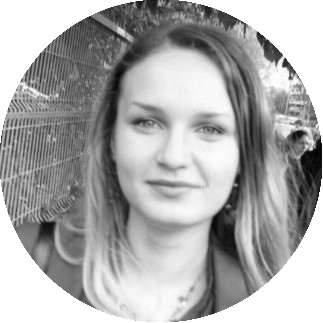
This is Dana Munteanu
Dana Munteanu
Works for DB Global Technology, teaches Banking Software Design
and this is her story
I graduated the Math and Info Faculty from Bucharest Univ. in 2016. Then I took the master in Software engineering until 2018. Meanwhile, I was also holding a steady job in programming since 2014. By 2016 already, while still a student, I was discovering a passion for teaching, that pushed me into taking care of the Data Base Lab within the faculty.
Two years later I first worked as contractor for DB Global Technology, then officially join the team full time. From my first year already I’ve been asked to get involved with the internship program DB Tech School. Soon after came the master and here I am, helping new talent find a way in, next to my Politehnica colleagues, some of them formerly my teachers too.
You may wonder how is like to work for DB Global Technology? Well then, everyday is a challenge. But always a pleasure as well. I do like working with international teams. I also like the diversity of projects and the fluid program, as we have to stay connected and interact at all times, while everyone has different background and often works from another country. I am also known to enjoy helping new comers integrate, helping them dial in with the rest of the team from the technical point of view.
The Banking Software Design class I am part of is one of the most valuable for any IT student. Only apps being built from scratch will show you what it really takes to do digital banking. It will show you all the different specialities necessary, one step after another, as you go further and understand what it takes along the way.
I am so grateful that new talent is now granted access to speciality help. For every skill needed we have an experienced performer to show you how it’s done. And that is priceless! If you search for honesty and a clear view, you need someone that deals with the specific challenges on a daily basis. Nobody else will be able to bring better insights.
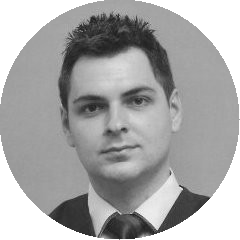
This is Bogdan Nicolae
Bogdan Nicolae
Works for DB Global Technology, teaches Banking Software Design
and this is his story
Let me tell you how I got to become a Senior Software Engineer. It all started way before 2008, when I was graduating the Mechanical Engineering Faculty. Then came the Hidraulic and Pneumatic Systems Informatics master, in 2010.
For a few years, I worked as an actual project engineer, until I found my way in IT as programmer. But I always had a passion for web based apps, way back from highschool, as I like to recall with a smile when thinking about my first ‘famous’ website, promoted by PRO TV on their ‘.Ro’ show.
As for teaching, I had my first experience in 2017, at the Web Tech lab of the Math and Info Faculty from Bucharest Univ. Then in 2018 I tried my hand at teaching again, as trainer for the DB Tech Internship School. That was about an year after I join the boat, as a full time DB Global Technology programmer.
When I don’t teach, which is most times, I work with an international team, staying connected with foreign colleagues and dealing with various projects that involve different kinds of programming. Sometimes I manage projects too, as I did as coordinator for the Front-End project.
I started teaching Software Design for the Financial Computing Master at Politehica in 2018. I feel it’s a great class, for it follows closely all the process of an enterprise application, from planning to designing to the architecture, developing, testing and finally to the production phase.
Any future architect of entreprise apps needs to see the whole picture, in order to really grasp the complexity and the expertise needed every step of the way. As one of my students was telling me the other day, we all need a class like this for an in-depth understanding of what our peers are doing.
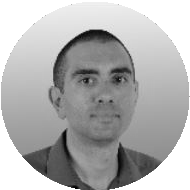
This is Ion Moldoveanu
Ion Moldoveanu
Works for DB Global Technology, teaches Banking System Software Life Cycle
and this is his story
I am a graduate of the Faculty of Automatic and Control and Computer Science. Together with my colleagues from DB Global Technology, I now have the opportunity to share the experience I developed in 20+ years of working in the industry with the students of the Financial Computing Master. They already have strong technical skills. This master is enabling our graduates to apply their skills in the complex world of finance and to add value as part in large international teams, working on critical trading, risk, treasury or anti financial crime software platforms. The programme combines academic rigour and classes from the curricula, with mentors bringing hands-on industry experience and applied skills.
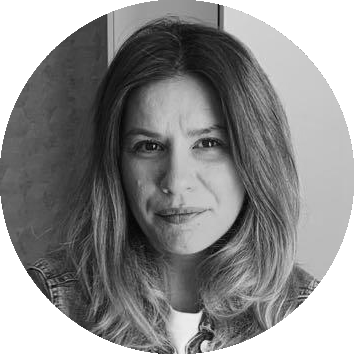
This is Ruxandra Caraivan
Ruxandra Caraivan
Works for DB Global Technology, teaches Self-discovery and Effective Communication
and this is her story
I am a Senior HR Business Partner at Deutsche Bank Global Technology, I have a degree in Psychology and a certification in Integrative Psychotherapy. With over 15 years of experience working with people in various global organizations, I have given numerous trainings and workshops in both the corporate and academic fields on personal development, effective communication and public speaking. I strongly believes that people have infinite resources to grow on their own, all they need to do is find out where their full potential is and how they can take full advantage of it.
Since the creation of the curriculum for Financial Computing, in addition to the technical courses, we thought of introducing a course that will focus on the area of Soft Skills, so as to help students develop their communication and interpersonal skills, to become more confident and more efficient when communicating with others or when giving presentations to audiences. The course was a real success from the beginning, and when we moved online because of the pandemic, the number of participants doubled, because students from other masters also enrolled. And even if the online communication was a challenge for everyone, we appreciated the students' interest and especially their presence in large numbers, which confirms that they understood that communication and interpersonal skills are an important and useful asset both at a professional and personal level.

This is Răzvan Dobrescu
Răzvan Dobrescu
Works for UPB, teaches Industry Expert Lectures in Finance
and this is his story
For me, the joy of the Industry Expert Lectures in Finance course is that I can be both a teacher and a student at the same time. Last year, during a long talk after class, one of the students said that he appreciated most the economic perspective which he considered I was bringing into the analysis of a highly technological industry. In that moment I realized that class after class I was also learning more and more about the technology that changes the way the financial industry does business every day. And after more than 15 years in the financial industry, I can tell you that today`s changes are dramatic.
I believe that technology will continue to influence and change the financial industry at an unprecedented rate and today`s students are the ones who will support and spear this change in the future. Therefore, it is important for me that they perceive and understand the economic implications brought by the implementation of new technologies. And this endeavor could not achieve its goal if it wasn`t for the extraordinary contribution of the guest speakers who bring to class a tremendous experience in financial institutions, banking, technology start-ups, multinational companies, central banks ....
Although it is my most demanding course in UPB, the way we have managed to capitalize on our collective knowledge for the benefit of all makes me eager to meet new students. Who knows what I will learn this time?
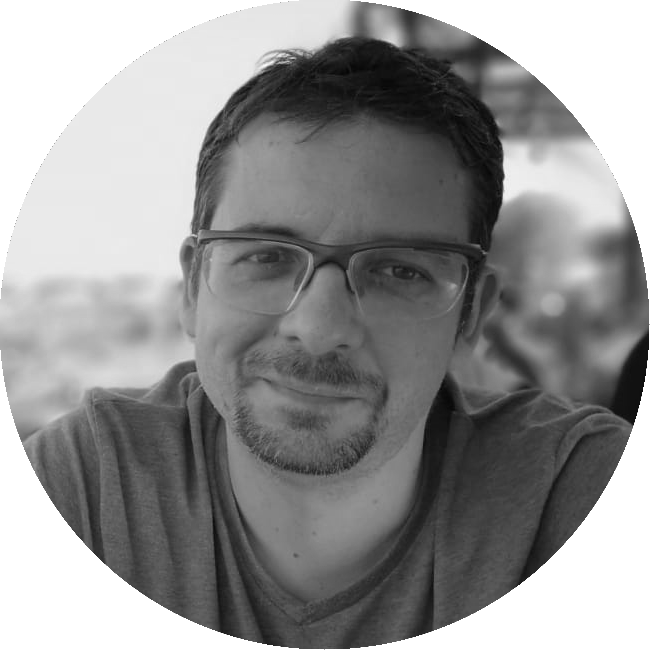
This is Vlad Posea
Vlad Posea
Works for UPB, teaches Applied Human Computer Interaction
and this is his story
I always considered that being a software engineer is much more than being a good developer. I teach students to write code in the first year and I enjoy that very much but it's just the first step. You have first to write code that's correct, then one that 's optimized and finally to write code that is useful.
This is what ""Applied Human Computer Interaction"" aims, to help students understand how to develop applications that are usable, useful and solve real problems. I love teaching this course, having engaging and enlightening conversations with the students and seeing the projects that they developed at the end of the course. Students appreciate it because even if they don't actually write code they consider it to be practical, useful and different.


